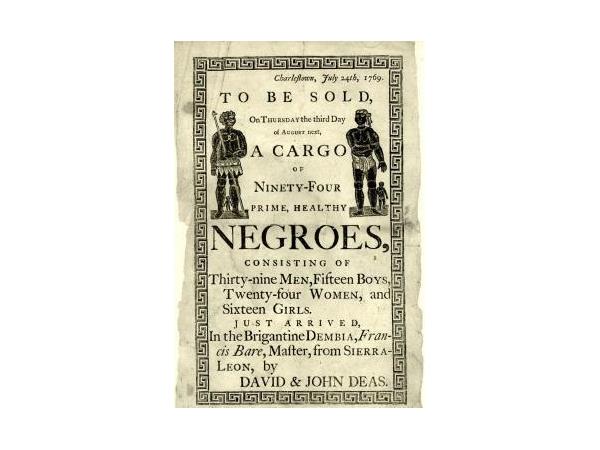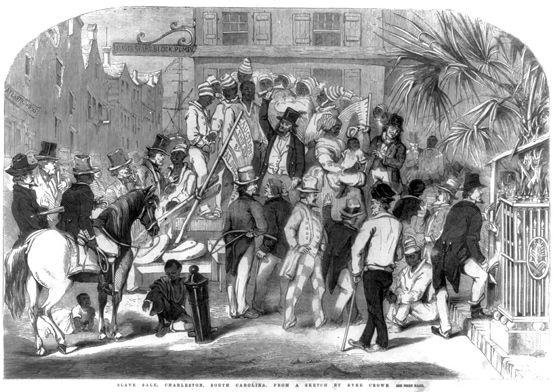10 May 1740: South Carolina Passes Negro Act Codifying White Supremacy
ANGLO AMERICA, 11 May 2020
Equal Justice Initiative - TRANSCEND Media Service
On May 10, 1740, the South Carolina Assembly enacted the “Bill for the better ordering and governing of Negroes and other slaves in this province,” also known as the Negro Act of 1740. The law prohibited enslaved African people from growing their own food, learning to read, moving freely, assembling in groups, or earning money. It also authorized white owners to whip and kill enslaved Africans for being “rebellious.”
South Carolina implemented this act after the unsuccessful Stono Rebellion in 1739, in which approximately fifty enslaved black people resisted bondage and waged an uprising that killed between twenty and twenty-five white people. In addition to establishing a racial caste and property system in the colony, the assembly sought to prevent any additional rebellions by including provisions that mandated a ratio of one white person for every ten enslaved people on a plantation. The Negro Act rendered enslaved Africans human chattel and revoked all forms of civil rights.
The law served as a model for other states; Georgia authorized slavery within its borders in 1750 and enacted its own slave code five years later. In 1865, the passage of the Thirteenth Amendment legally abolished slavery in the United States but discriminatory Black Codes and Jim Crow laws developed to maintain the oppression of black people, ensuring that the legacy of the Negro Act of 1740 and similar laws remained present throughout the country for more than two centuries.
Tags: Africa, Anglo America, Black Culture, History, Racism, Slave labor, Slavery, USA, White Supremacy
DISCLAIMER: The statements, views and opinions expressed in pieces republished here are solely those of the authors and do not necessarily represent those of TMS. In accordance with title 17 U.S.C. section 107, this material is distributed without profit to those who have expressed a prior interest in receiving the included information for research and educational purposes. TMS has no affiliation whatsoever with the originator of this article nor is TMS endorsed or sponsored by the originator. “GO TO ORIGINAL” links are provided as a convenience to our readers and allow for verification of authenticity. However, as originating pages are often updated by their originating host sites, the versions posted may not match the versions our readers view when clicking the “GO TO ORIGINAL” links. This site contains copyrighted material the use of which has not always been specifically authorized by the copyright owner. We are making such material available in our efforts to advance understanding of environmental, political, human rights, economic, democracy, scientific, and social justice issues, etc. We believe this constitutes a ‘fair use’ of any such copyrighted material as provided for in section 107 of the US Copyright Law. In accordance with Title 17 U.S.C. Section 107, the material on this site is distributed without profit to those who have expressed a prior interest in receiving the included information for research and educational purposes. For more information go to: http://www.law.cornell.edu/uscode/17/107.shtml. If you wish to use copyrighted material from this site for purposes of your own that go beyond ‘fair use’, you must obtain permission from the copyright owner.


